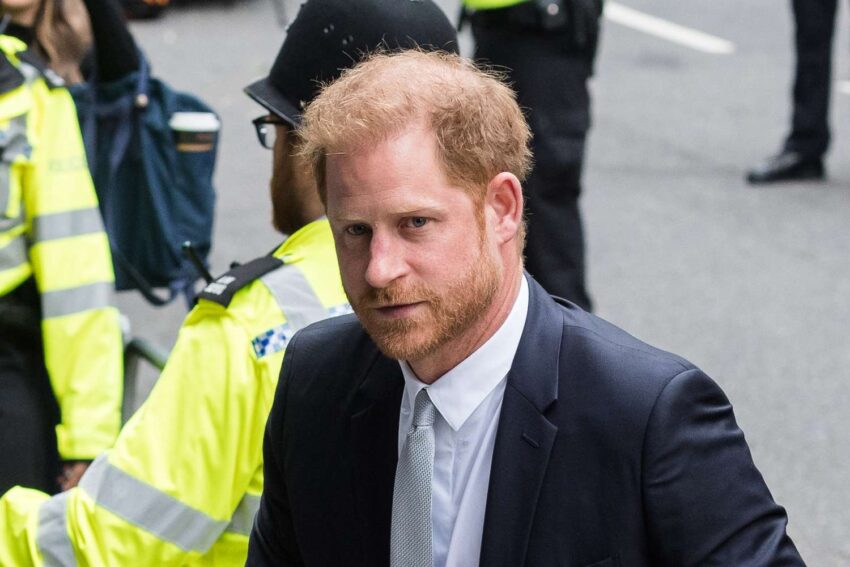Prince Harry, 38, has made a bold statement in the High Court, expressing his distress over a newspaper’s reporting of his breakup with Chelsea Davy.
The Duke of Sussex believes that the articles were not only hurtful but also seemed to revel in their split.
In particular, he cited a story from November 2007 published in the Irish edition of the Sunday Mirror, which divulged intimate details about their relationship.
The article alleged that Harry had pleaded for a second chance during a secret meeting with Chelsea.
Reflecting on this, Harry stated, “These types of articles made me feel as though my relationship with Chelsea was always destined to fail.”
However, GB News presenter Mark Dolan has challenged Harry’s claims, suggesting that the Duke’s own behavior may have contributed to the demise of his relationship.
Speaking on GB News to the Point, Dolan remarked, “The world’s least happy millionaire is complaining about his life.
He blames the media for his relationship’s failure, but I believe it didn’t work out because he’s simply an annoying numpty.”
Adding to the controversy, recent reports indicate that Sam Cutmore Scott, Chelsea Davy’s husband and a hotelier, intends to sue Prince Harry for involving his wife in the lawsuit.
According to sources, Chelsea ended her relationship with the Duke due to his excessive complaining, unrelated to media coverage.
Chelsea has since moved on and enjoys a contented private life with her husband and son.
Unearthing the past could prove damaging to Chelsea’s well-being.
Interestingly, some observers, including GB News host Dan Witton and American journalist Megyn Kelly, have noted that Prince Harry’s continued focus on his ex-girlfriend Chelsea Davy should raise concerns for Meghan Markle.
Witton pointed out that in Harry’s witness statement, he mentioned Chelsea approximately 118 times, whereas Meghan was mentioned only five times.
This raises questions about whether Harry has truly moved on from Chelsea Davy.
Many of Harry’s grievances revolve around tabloid coverage of his breakup with Chelsea Davy, who is now married and known as Chelsea Yvonne Cutmore Scott.
One article that Harry cites as evidence claimed that Chelsea reprimanded him over the phone for flirting with another woman at a party.
However, Harry emphasized that these details were not attributed to any sources in the written testimony.
Another article described an emotional phone call in which Chelsea requested a trial separation.
Additionally, a journalist reported that Harry had angrily hung up on his father, Prince Charles, following an argument about Chelsea.
In his statement, Harry expressed his disbelief at how private details of their vacations off the coast of Mozambique ended up in the tabloids.
He also revealed that journalists and photographers would arrive at their hotel even before they did, leaving them with no privacy.
This constant intrusion took a toll on their relationship and played a significant role in their decision to end it.
Harry confessed, “We could never comprehend how intimate aspects of our life together found their way into the tabloids, causing our circle of friends to shrink.”
He further admitted that his struggle to trust anyone led to bouts of depression and paranoia.
Regrettably, he severed ties with friends whom he suspected of leaking information.
Lawyers representing the publisher have argued that most of Harry’s claims pertain to articles published between 1991 and 2011, surpassing the usual six-year time limit for legal complaints regarding privacy violations.
Andrew Green, one of the company’s lawyers, also asserted in court that there was no need for the Daily Mirror journalist to resort to unlawful means since information about Harry had already been published by other news outlets.
Harry, however, strongly refuted this claim.
As the court proceedings continue, Prince Harry’s allegations against the newspaper shed light on the challenges faced by public figures in maintaining privacy and managing media scrutiny.
The outcome of this case will undoubtedly have implications for the future of press coverage and the boundaries of journalistic responsibility.
